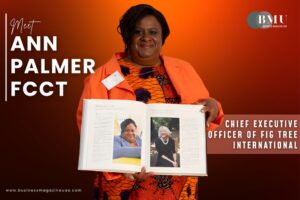
By Andrey Rogachev - Strategic Management & Corporate Financial Security Expert, Investor, Professor at Synergy Business School (Dubai), Doctor of Economics
As a cross-cultural strategist, I examine communication at every level of an organization to uncover its management DNA. In multicultural business environments, understanding the strengths and weaknesses of leadership is essential for preventing crises and maintaining harmony. The old adage still holds true: “Who controls information controls the world.”
Over the past four years, global business has witnessed a noticeable “Eastern shift.” Amid geopolitical uncertainty, the UAE and its Middle Eastern neighbors have emerged as stable legal environments for global trade. Yet succeeding here requires more than understanding customs regulations — it demands a deep awareness of local culture, values, and communication norms.
In the UAE, even senior government officials and members of the royal family often own private businesses, and speak about them openly. Corporate structures are typically hierarchical, with decision-making concentrated at the very top: one leader, one voice. When dealing with Emirati partners, expect to work directly with owners or CEOs, and tailor your approach accordingly.

Rule 1: Leadership Is the Sum of Personality and Environment
Many UAE corporations are family-owned, passed down through generations. This continuity preserves hard-earned business wisdom and fosters a corporate culture built on trust, respect, and long-term partnership.
Leaders here often infuse corporate values with their personal beliefs, making the company a reflection of their identity. To advance in this environment, one must build consensus, coordinate across departments, and be patient with decision-making cycles that may seem slow by Western standards.
Emirati leaders value harmony, and confrontational behavior can be perceived as disrespectful. Non-verbal cues carry significant weight — direct eye contact often conveys trust, while crossed arms may signal defensiveness.
Rule 2: Negotiations Reflect Cultural DNA
Respect for religion and tradition is non-negotiable. Meeting arrangements should be made personally — ideally by phone — and well in advance. Email agreements carry little weight unless reinforced in person. A trusted mutual contact can help secure a warm introduction, as Emiratis prefer working with those they know and trust.
Rule 3: Remember You Are a Guest
Islamic principles and Sharia law influence daily business life. Companies allow breaks for the five daily prayers and shorten working hours during Ramadan. Islamic holidays like Eid al-Fitr and Eid al-Adha may pause all business activity.
Partnership ethics differ from the West: corruption, financial misconduct, or labor rights violations can destroy a reputation overnight. The prohibition of riba (interest) shapes financial transactions, while flexibility in scheduling means meetings may start late or run long. The working week runs Sunday to Thursday, with Friday reserved for prayer and rest.
Rule 4: Honor the UAE Code of Business Ethics
Islamic business ethics are built on honesty, integrity, and fairness. Deliver on promises, maintain transparency, and protect trust at all costs.
Key guidelines:
- Punctuality, with flexibility: Be prepared for delays or last-minute changes.
- Dress conservatively: Business suits for men; modest attire for women — long sleeves, skirts below the knee, no excessive accessories. Cover tattoos and piercings in professional settings.
- Greetings matter: Address the eldest participant first. Use respectful titles like Sheikh/Sheikha (highest respect), Sayyid/Sayyida, and “Your Excellency” for royalty are important. A handshake may last longer than in the West.
- Non-verbal etiquette: Exchange business cards with your right hand; never show the soles of your shoes; avoid using your left hand for offers or greetings.
- Small talk first: Discuss family, health, or weather before moving to business.
- Show competence: Bring well-structured presentations in English, ideally with an Arabic translation.
- Patience is a virtue: Aggressive negotiation tactics backfire; aim for tact and compromise.
- Gifts & gratitude: Send a follow-up thank-you note. Gifts should comply with Islamic norms — avoid alcohol and pigskin. Cultural souvenirs, books, or quality business accessories are welcome.
- Dining etiquette: No alcohol or pork; eat with your right hand; tipping is 10%; accepting extra servings is a sign of respect.
An invitation to a partner’s home is a high sign of trust — always remove your shoes upon entering.
Rule 5: Gender Etiquette Matters
Women’s roles in business are expanding rapidly in Dubai and Abu Dhabi, though more conservative emirates such as Sharjah and Ajman remain traditional. When planning meetings with female executives, confirm your partner’s comfort level with direct interaction and adjust for local cultural expectations.
Fast-Track Etiquette Checklist
- Allow for timing flexibility.
- Communicate diplomatically — avoid voice notes, abbreviations, and emojis.
- Acknowledge major Islamic holidays with greetings, and avoid business discussions during them.
- No alcohol, ever.
- Avoid negative remarks about people — news travels fast.
- Be cautious with humor; avoid sarcasm.
- Steer clear of politics.
- Treat big promises with healthy skepticism.
- Keep personal issues private.
- Never speak negatively about your own country.
Final Thoughts
The UAE remains deeply rooted in Sharia law and centuries-old traditions. Business success here is built on relationships, mutual respect, and a willingness to be patient. Profit matters — but trust matters more. Adapt to these cultural rhythms, and the very rules that may seem restrictive at first will become your most powerful tools for building lasting, high-value partnerships.
Connect with Andrey Rogachev on LinkedIn, Instagram, and Telegram, or visit https://a-rogachev.com/ for more.
Also Read :-
Sabina Mahonaky: Building Economic and Cultural Connections as a Hungarian Content Creator in Dubai
The Pathfinder of Possibility: How Syed Mohammed Abdullah Is Quietly Transforming Global Immigration







